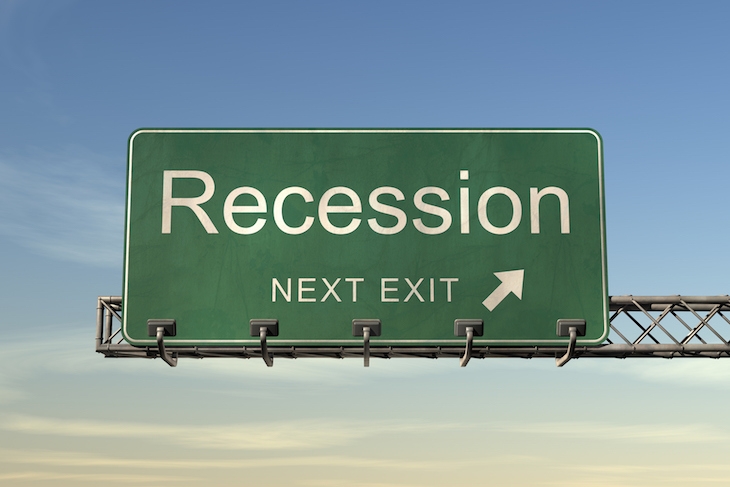I’ve been on a mini-tour, full of echoes and warnings. First, to the Grange Festival in Hampshire, where we might still have been enjoying the summer of ’87: a moneyed audience in a Barings mansion laughing at funny foreigners in John Copley’s retro Seraglio (see Richard Bratby’s crit last week). Then to Oxford, to show an American friend the gardens of my alma mater, Worcester College, and recall the sweltering heat of ’76 that distracted us from revising for finals or noticing the Labour-driven economic crisis that would blight the start of our careers that autumn. Then to London, to make light of Trump with other American friends — and back home to Helmsley, of which more in a moment.
This is a season of feelgood — at least until thunder and flash floods strike. As we chat of Southgate’s waistcoat and Wimbledon and Love Island, we choose to ignore the harbingers of difficult times to come — and the market twitches that might, on past form, turn to turmoil as early as August.
Experts tell us bond markets are beginning to signal (via ‘a flattening of the yield curve’, too technical to explain here) recession ahead, driven by rising interest rates and tighter credit in the US, plus the fast-escalating trade war with China which the Washington economist Adam Posen calls ‘Trump’s Folly’ for short. The long bull run in equities is overdue for an ending, too, according to several top analysts, share indices having wilfully shrugged off not only Trump’s follies but much else that might have shaken them.
And I need hardly go on again about the effect of Brexit uncertainty on business investment throughout the UK, not just in the auto industry I wrote about last week; nor about the threats to eurozone growth from political upheaval in Germany and Italy; nor the long-anticipated debt crises in China and emerging markets that may be brought to the boil by rising rates; nor the impact of rising oil prices if the Saudis won’t do Trump’s bidding and open the taps.
Enjoy the sunshine, the tennis, the Spectator readers’ tea party and whatever else makes your summer. We’ll cope with what happens next when it comes. But if it includes a slump in world trade on top of a chaotic Brexit while financial markets crash under their own momentum, it might just turn out to be that most feared of doomster clichés: the perfect storm.
The furnace still burns
The merger of Tata Steel with the German giant ThyssenKrupp is a positive outcome for the Port Talbot steelworks that drew such gloom-laden media attention when Tata’s Indian owners announced they wanted out, by sale or closure, in March 2016. There were even stories that David Cameron’s government might part-nationalise the plant to avert headlines about industrial job losses just ahead of the EU referendum.
Peripheral parts of the company were sold off, notably its rolling mill at Scunthorpe, which was bought by some private equity risk-takers called Greybull.
But for want of better options, Tata held on to the core of the business and has finally signed a deal that creates Europe’s second-largest steelmaker after ArcelorMittal, with a commitment to extending the life of the Port Talbot blast furnace and an aspiration to avoid compulsory redundancies at least until 2026.
At a time when Trump’s tariffs on steel imports into the US from China could lead to dumping of surplus Chinese steel in European markets, and when the future terms on which UK steel products will be allowed through EU customs remain unknown, the merger is a brave statement of faith in the logic of consolidation and economies of scale whatever the political risks.
When the going gets tough, Welsh jobs are still likely to evaporate faster than German ones. But it’s a lease of life for a beacon of British industry at a time when most of the news is about capital investment moving elsewhere; so long as the furnace still burns, there’s something to play for.
Thatcher and bitcoin
Taking me to task for my dim view of bitcoin, James Hulme (Letters, 30 June) enlists the support of Friedrich Hayek and, more tenuously, Margaret Thatcher. It’s true that Hayek wrote, in the mid-1970s when inflation was rampant, about ‘denationalising’ money and the possible advantages of ‘concurrent private currencies’ — but I doubt he had in mind the sort of ultra-volatile gambling chips that now abound in cyberspace.
Nor would Margaret Thatcher (who would not contemplate an independent Bank of England, never mind the total liberation of money from the state) have given their advocates the time of day. As for Mr Hulme’s assertion that ‘ordinary Venezuelans and Zimbabweans love bitcoin’ — perhaps they do, but wouldn’t they love uncorrupted democracy, the rule of law and a reasonably stable state currency a lot more, and don’t those three things generally go together? The solution to bad governance — of money as of anything else — is more accountable governance that learns from past mistakes; it isn’t the abandonment of governance to cyber-pirates.
Tratts and tatts
At home in Helmsley, I’m coping with the heat by sipping Aperol Spritz at a shady table outside our new trattoria, a scene unimaginable for small-town Yorkshire a few years ago. And another venture about to open offers an even sharper parable of changing consumer taste: a tattoo parlour. About a third of young British adults, of all classes and occupations, now display decorated limbs and torsos; a significantly higher proportion than in France or Germany. Tattoo art is a $50 billion global business in which we can surely claim leadership, whatever other challenges we face. What’s more — as a lawyer friend pointed out, coyly adjusting her neckline — this one’s a double opportunity, because there’s a parallel high-growth industry in tattoo removal.







Comments